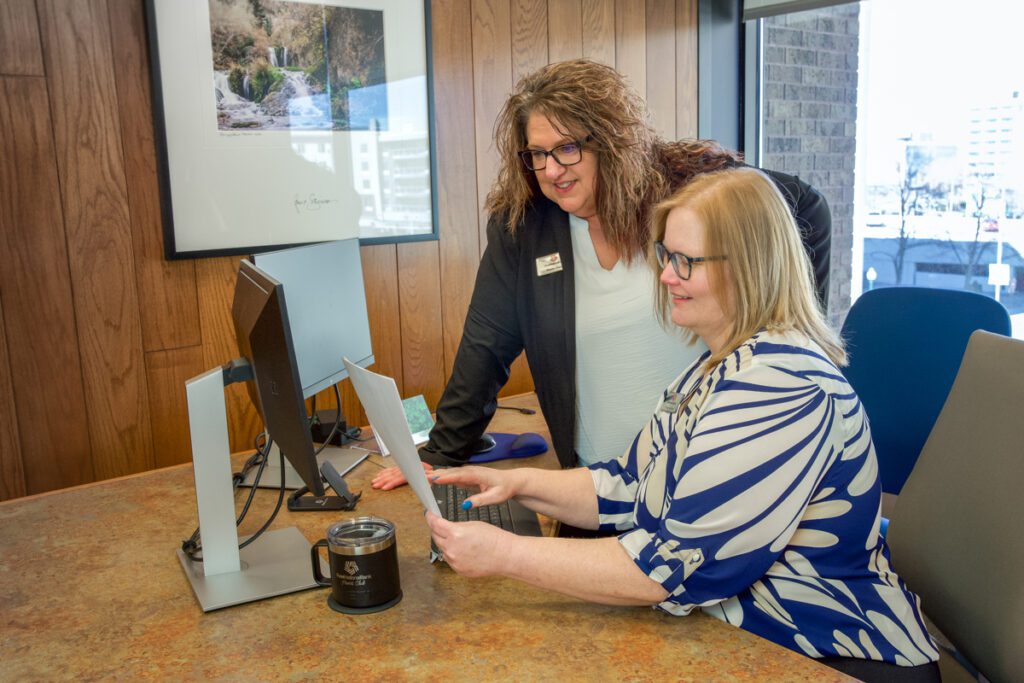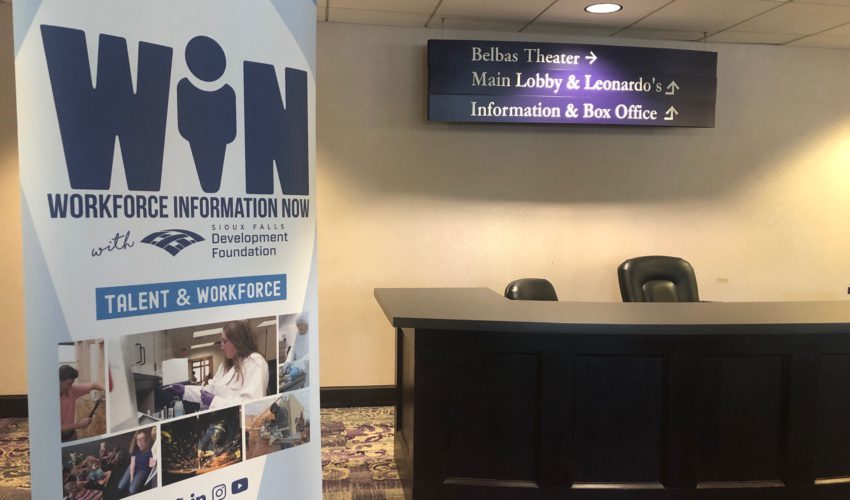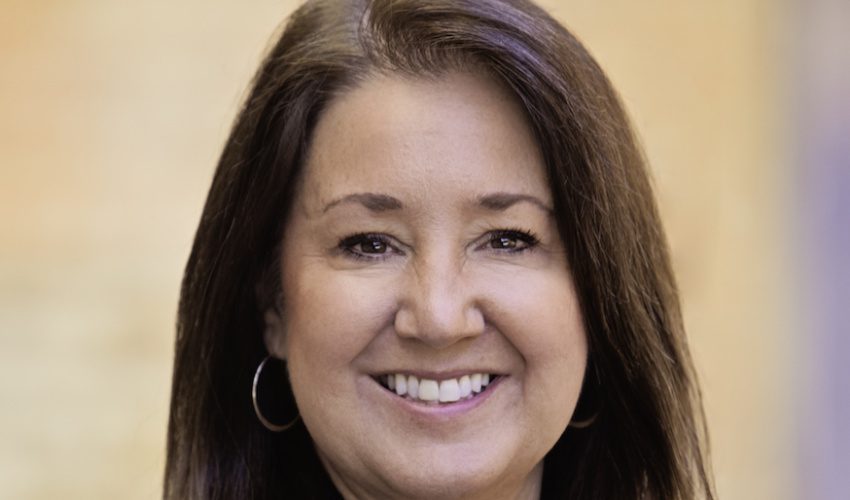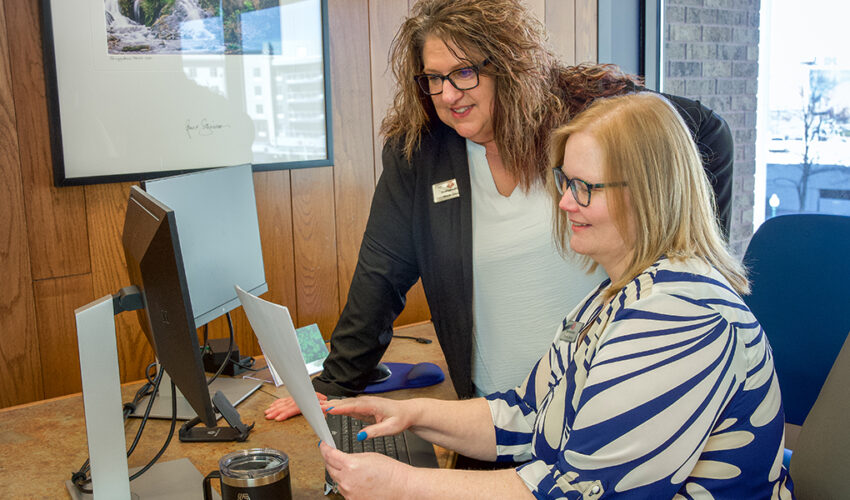Business owners can take away valuable lessons from recent fraud attempt at First National Bank
April 2, 2024
This paid piece is sponsored by The First National Bank in Sioux Falls.
The operations team at The First National Bank in Sioux Falls recently shut down a fraud attempt in the amount of more than $221,000 — a scheme hinging on a small-business’ check that had been intercepted by the fraudsters.
According to the Federal Trade Commission, bank transfers and payments accounted for the highest losses — $1.86 billion — from scams in 2023. If not handled properly, check payments can pose a great risk for businesses.
That’s why First National Bank is sharing this story: to help business owners better understand how checks can become vulnerable to fraud and what you can do to mitigate that risk.
A $221,000 returned check
It started with a fraudster — posing as a new customer — coming into First National Bank’s downtown location, sitting across the desk from a banker and opening an account for her “new graphic design business.” For the privacy of the parties involved, we’ll refer to it simply as Business Inc.
She had all the right paperwork, including a business license from the South Dakota secretary of state.
Although she had a Georgia driver’s license, her story about a recent move to Sioux Falls made sense. No red flags there — yet.
After the initial opening deposit and a subsequent deposit of $400 via a money order, the customer sent a check through FedEx in the amount of $221,258.15. It was payable to Business Inc., but the address listed on the check was in Dallas, Texas.
“Our portfolio is made up of business customers from all over the state, including farmers and ranchers, so it’s not unusual to receive and deposit a check in this manner,” said Roxie Olsen, item processing team leader at First National Bank.
“But when we deposited the check into Business Inc.’s account, the bank it was drawn off of returned it,” she added. “This was actually a bank in Oklahoma, and they said the check was no good; a stop payment had been placed on it in June.”
Roxie Olsen and Tammy Garcia, members of First National Bank’s operations team, look into a fraud attempt.
“What we have is a check from Oklahoma written to a business with a Texas address, being deposited into an account in South Dakota that was opened using a Georgia driver’s license,” said Scott Hirsch, deposit operations manager.
At this point, members of First National Bank’s operations team reached out to the Oklahoma bank to figure out what was going on.
The returned check, which was dated Dec. 18, 2023, had a stop payment placed on it in June 2023 — meaning that the check was written before or during June, it went missing before reaching the payee in Texas, and the original sender of the check canceled the payment so it could not be processed.
And this is where businesses owners should take heed.
“When you look up Business Inc., there is a business with that name and a Texas address,” Olsen said. “It’s just not a graphic design business.”
The conclusion: This $221,258.15 check was written by a legit business, sent to the real Business Inc. in Texas to make a payment and somehow was intercepted. Then, fraudsters altered the check and attempted to deposit it into the new account for their own fake Business Inc.
Where business owners are at risk
To make a long story short, First National Bank was able to restrict and then close the account before the fraudsters could withdraw the $221,000 — although they did attempt to write checks off the account in the meantime.
In the event that they withdrew the funds before the account was closed, First National would’ve taken the loss.
But where the risk for business owners comes in is the source of the check.
Had the original sender not placed a stop payment when the check went unreceived by the real Business Inc. and had those funds been deposited into the account at First National and withdrawn by the fraudsters, the original sender might’ve taken that loss.
“Because this business had a stop payment on the check, they were able to prevent it from being cashed and protect themselves from losing the funds,” Hirsch said. “Otherwise, in that scenario, it would have been up to the Oklahoma bank whether they were going to take the loss or have that business take it. Luckily, nobody took a loss here.”
However, this is still a perfect example of why all business owners need to be wary of fast-growing instances of check fraud — and evidence that this could happen to any business at any time.
Based on this example, the team at First National Bank has recommendations for how business owners can protect themselves from a potential loss of their own.
Mitigating check fraud and using Positive Pay
Some alternate routes to consider other than writing checks are ACH or wire, Hirsch said. “These options are much more secure than writing a check. However, if you plan on continuing to use checks, other solutions for preventing check fraud are protecting your mail and using Positive Pay.”
Tammy Garcia, fraud/disputes team leader at First National Bank, recommends taking checks directly to the post office rather than leaving them in an unattended mailbox. Another option is to have a vendor pick up your mail and take it to the post office for you.
“Even leaving checks in the blue USPS mailboxes around town can pose a risk,” Garcia said. “There’s a new trend of people breaking into those mailboxes and taking mail out of there; we saw this happen in Brandon recently. They toss away the letters, but they’re looking for those checks that businesses are mailing. Then, they can alter them and run a scam similar to this one.”
The biggest factor in mitigating your business’ risk is to use the Positive Pay service offered by banks. After all, that was the saving grace in this situation.
“When we talked to the bank in Oklahoma, they said that the original sender of the check was using Positive Pay,” Olsen said. “The process worked, and that’s what Positive Pay does — flags a check if something seems unusual about it as it’s going through that paying bank.”
Therefore, even if one of your checks is somehow intercepted, the system still should be able to catch it and allow you to put a stop payment on it.
“After you sign up for Positive Pay, the process is as simple as exporting your check register and uploading it into online banking,” said Alex Haverly, treasury management supervisor at First National Bank.
The check register should include check numbers, dollar amounts and payee information, “so the system can review checks being drawn off your account to make sure that they match the information you provided,” Haverly added.
And in the event that a check comes through that doesn’t match what you’ve uploaded, Positive Pay will notify you; then, you will be able to review the check within the short return window and return it if there are any discrepancies.
“Our top priority at First National Bank is protecting our customers and their finances,” Haverly said, “which is why the check Positive Pay service is completely free for our customers to use. It may seem like a hassle to upload every check, but that’s nothing compared to potentially losing hundreds of thousands of dollars to fraud.”
If you have questions, want more information about preventing fraud or would like to discuss using the Positive Pay service, reach out to the treasury management team at First National Bank; they’re happy to help! And, for more information on preventing check fraud and other types of business fraud, check out this article.









